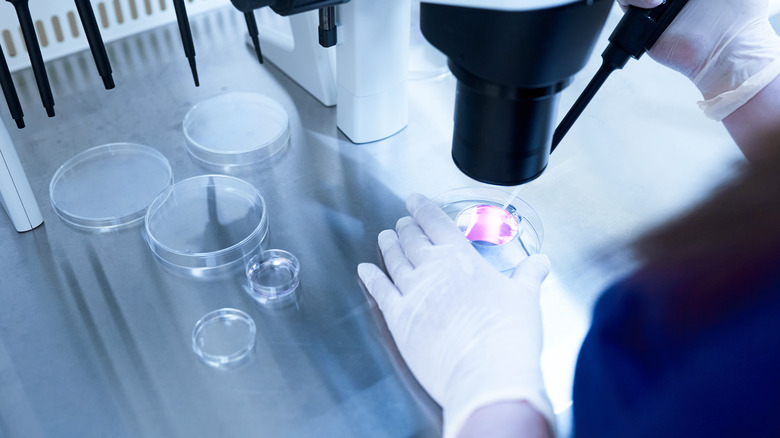The Real Reason Not Everyone Can Donate Eggs
Donating eggs is a pleasure for many people. It may feel wonderful to help others who may not otherwise be able to have children on their own. Unfortunately, when signing up to donate eggs, some people may find that they are not eligible to do so. Some of the reasons may include that they are 36 or older, have a BMI over 25, use contraceptive implants, or have recently travelled abroad (per Family Tree Surrogacy).
Some of these reasons are not surprising. For example, the average woman has already lost most of their eggs by age 36, leaving her with relatively few eggs to provide via donation (per CNY Fertility Center). Egg quality also decreases with age, which means that any available eggs are less likely to result in a healthy pregnancy. Other unsurprising disqualifiers are tobacco and substance use, and inheritable genetic disorders. These factors can influence the quality of your eggs, and increase the chances that the resulting child will have health problems (per Manchester Donors).
According to Family Tree Surrogacy, many egg donation centers also look to menstrual cycles as a sign of fertility. If you have abnormal or irregular periods, you may be disqualified from donating eggs because it can be an indicator of reproductive conditions such as endometriosis and PCOS.
Egg donation eligibility requirements are intended to make the process safer and more efficient for everyone involved
While some disqualifiers are pretty intuitive, others might seem perplexing — but they all exist for a reason. For example, travel may be a disqualifier if you recently traveled to a place where the Zika virus is prevalent; this is to protect against transmission of the disease, as well as to prevent possible birth defects related to Zika (via Eggceptional Donors). Moreover, some programs will not accept donors who have recently gotten a tattoo or piercing. According to Manchester Donors, this restriction is also to reduce the risk of transmitting infectious diseases.
Certain methods of birth control, such as contraceptive implants, need to be discontinued before a person is eligible to donate eggs. This is because those methods of birth control interfere with hormones and may make the egg donation process less fruitful (via Growing Generations).
On the other hand, some egg donor restrictions exist not only to pave the way for a healthy pregnancy and baby, but also to protect you as a potential donor. For example, egg donors must be within a healthy weight range because otherwise they are at higher risk of adverse effects from the egg donation process (per ORM Fertility).


